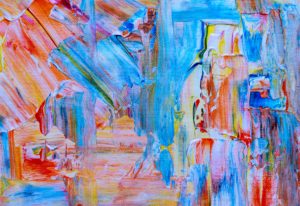Pagine
Iscriviti alla Newsletter
 invio in corso...
invio in corso...Condividi e segnala
Tag
- Althusser
- Antropologia
- Baumgarten
- Bourdieu
- Conceivability of Nothingness
- Conciliation
- corpo
- Derrida
- Dialectics
- Difference
- distinzione
- Europe
- Expression
- giudizio
- Grace
- Habitus
- Heidegger
- Hobbes
- Kant
- linguaggio
- Lyotard
- marxismo
- Medieval Aristotelianism
- Metaphysics
- Nature
- Negative
- Nichts
- nihil
- Nihilism
- nihil negativum
- nihil privativum
- Non-identical
- Nothing
- Nothingness
- onore
- politica
- postmoderno
- pratica
- riconoscimento
- Smith
- solitudine
- Sovranità
- Spinoza
- Thomas Aquinas
- Western Ontology
-
Articoli recenti
Link
Archivi categoria: Rileggere il primo libro del Capitale
Abstract Labour and Labouring

Werner Bonefeld*
University of York, UK
werner.bonefeld@york.ac.uk
Abstract: The paper argues that the critique of political economy amounts to a comprehension of economic categories from the actual, given relations of life, which is critique of economic things as perverted social forms. In this context, the comprehension of abstract labour is specific. Instead of conceiving of it as a capitalist modality of labour in general, it expounds abstract labour as purely social in character. Abstract labour is the value producing labour because it is the socially necessary labour, which is a real abstraction. The time of … Continua a leggere
Pubblicato in NUMERO 5, Rileggere il primo libro del Capitale
2 commenti
Il Capitale e il suo punto cieco: il denaro come tecnica di misura

Frank Engster*
frankengster@googlemail.com
Abstract: In the 1960s, a logical-categorial reading of Marx’s Capital began, especially with focus on the value-form analysis, from which the so-called «New Marx Reading» in Germany was one of the outcomes. These readings on the one hand found, with the necessity of synthesizing the theory of value with that of money, the key to opening up the further development of the capitalist mode of production. On the other hand, they stayed fixed on money’s second function as a medium of exchange and on money-mediated commodity exchange, remaining trapped … Continua a leggere
Pubblicato in NUMERO 5, Rileggere il primo libro del Capitale
Lascia un commento
‘La bestia è l’azienda, non il fatto che abbia un padrone’. Commento al quinto capitolo del Capitale

Massimiliano Tomba*
Università di Padova
massimiliano.tomba@unipd.it
Abstract: The first chapter of the third section of Capital, Volume 1, constitutes in many ways an Archimedean point of the entire work. In this chapter the many theoretical questions investigated in the first section are reconfigured from the perspective of the labor-process and valorization-process, acquiring a new political color. In my reconstruction, by putting the use-value at the center, I explore the diverse theoretical layers of this chapter in light of their political implication.
Keywords: value; use value; commodity; socially necessary work; corporeity; production; circulation… Continua a leggere
Pubblicato in NUMERO 5, Rileggere il primo libro del Capitale
1 commento
La giornata lavorativa

Maria Grazia Meriggi
Università degli Studi di Bergamo
mgmeriggi@fastwebnet.it
Abstract: Marx found the comparison among the slaves owner, the feudal lord and the capitalist owner, to show their voracity of time of life of the workers. The limitation of the working day is possible only with a double trial: contractual strength of the organized workers and productivity of the worked time.
Keywords: plus value; strength’s relationships; productivity
Parlerò da storica soprattutto e quindi cercando di dare conto della pertinenza delle analogie ed esemplificazioni storiche che Marx fornisce intorno al tema … Continua a leggere
Pubblicato in NUMERO 5, Rileggere il primo libro del Capitale
Lascia un commento
La scoperta del plusvalore relativo

Maria Turchetto
Università Ca’ Foscari
turco@unive.it
Abstract: We analyze the Chapter 10 of Capital’s Volume I «The Concept of Relative Surplus-value» highlighting come important concepts: 1) the industrial and mass character of production as consequences of the relative surplus-value; 2) extra-profits and dissemination of innovations; 3) the combined operation of absolute and relative surplus-value.
Keywords: Marx; Capital chapter 10; relative surplus-value; industry; mass production
«il capitalismo non produce calze per regine».
(Schumpeter 1971)
1. Tra la terza e la quarta sezione
Il cap. 10 del Libro I … Continua a leggere
Pubblicato in NUMERO 5, Rileggere il primo libro del Capitale
Lascia un commento
Dall’anima semovente al ‘soggetto automatico’. Stratificazioni filosofiche nel concetto di ‘capitale’ e nell’analisi marxiana del sistema di macchine

Luca Micaloni
Università La Sapienza
luca.micaloni@uniroma1.it
Abstract: In this paper the Author examines the philosophical implications of the Marxian analysis of the «automatic system of machinery». In the first part, he shows that the notion of «automaton» cannot be univocally assimilated to a passive and heteronomous kind of movement. In fact, it displays (both etymologically and conceptually) an affinity with the notion of «self-motion»: an «automaton» is something that finds within itself the sources and the principles of its movement. In the second part, the Author argues that Marx’s definition of «capital» as «automatic Subject» … Continua a leggere
Pubblicato in NUMERO 5, Rileggere il primo libro del Capitale
Lascia un commento
Tempo di lavoro e salario

Carla Filosa
Università popolare Antonio Gramsci
asolif@tiscali.it
Abstract: The aim of this article is to clarify the meaning of «wage» and «labour-power» concepts, according to Marxian analysis. The feature of the labour-process as human action aimed at the production of use-values is first highlighted. It is the everlasting nature-imposed condition of human existence. Indeed, the process of creating surplus value is nothing but the continuation of the boundless producing value process. Thus, the prolongation of the working-day beyonds the limits of the natural day – encroaching on all life’s time – has mainly the purpose … Continua a leggere
Pubblicato in NUMERO 5, Rileggere il primo libro del Capitale
Lascia un commento
Una storia complessa. La teoria dell’accumulazione in Marx

Roberto Fineschi
Siena School for Liberal Arts
r.fineschi@sienaschool.com
Abstract: «Accumulation» is a crucial concept in Marx’ theory of capital. Next only to the value form, this is the part that underwent the most significant changes in the different drafts of his work, since it plays a crucial role in its general structure. Its function, more than the transformation of values into prices of production, is the key point to think the continuity/discontinuity between the different abstraction levels of the theory. In this essay, we shall try to show this development and explain its more general … Continua a leggere
Pubblicato in NUMERO 5, Rileggere il primo libro del Capitale
Lascia un commento
La teoria marxiana dell’esercito industriale di riserva come teoria della politica economica

Guglielmo Forges Davanzati*
Università del Salento
guglielmo.forges@unisalento.it
Abstract: This paper deals with the relation between labour market deregulation and the path of employment in Italy, based on Marx’s theory of the industrial reserve army. It will be shown that the increase in labour flexibility negatively affected the employment rate in the 2000s. Moreover, it is argued that as unemployment increases, workers’ bargaining power decreases not only in the labour market but also in the political arena, allowing the Government to implement further policies of labour flexibility. The evidence confirms this conjecture.
Keywords: Marx; … Continua a leggere
Pubblicato in NUMERO 5, Rileggere il primo libro del Capitale
1 commento
L’accumulazione originaria: genesi del modo di produzione capitalistico tra storia e struttura

Sebastiano Taccola
Normal School of Pisa
sebastiano.taccola@sns.it
Abstract: This paper proposes a re-examination of the Marxian primitive accumulation. In the first two parts, I will sum up the Marxian exposition of the primitive accumulation as a diachronic process, which is capable to explain the historical genesis of the capitalist mode of production, especially as it took place in England (through the Enclosures Acts, the clearing of the estates, and so on). Then, I will focus on the permanence of this kind of accumulation, on the one hand (part three), as a lever that drives the … Continua a leggere
Pubblicato in NUMERO 5, Rileggere il primo libro del Capitale
Lascia un commento
Da Hegel a Marx: fenomenologia dello Stato moderno capitalistico

Carla Maria Fabiani*
carla_fab@libero.it
Abstract: In Chapter 24 of the first book of Capital, Marx deals with the modern capitalist State, emphasizing the existence of complex factors which affect it. The theoretical basis of his reflection is to be found in Hegel’s Phenomenology. He points out the violent methods that the State use against workers – the eslege proletariat – and the subsumtpion of the State to capital.
Keywords: State, capital, system, rabble, eslege proletariat, pauperism
1. Definire lo Stato: prima Hegel e poi Marx
È bene soffermarsi su … Continua a leggere
Pubblicato in NUMERO 5, Rileggere il primo libro del Capitale
1 commento
Divagazioni intorno al 25° capitolo del I Libro del Capitale

Edoarda Masi (1927 – 2011)*
Abstract: This paper deals with Marx’s theory of colonization. It is argued that – in constrast with E.G. Wakefield’s view – Marx proposed a complete a consistent approach to the role of colonization in the dynamics of capital reproduction. In particular, he emphasized the transformation of free men in “underdeveloped” economies into wage workers.
Keywords: primitive accumulation; colonization; imperialism; China
1. Una lettura
Non riassumo il capitolo 25°, che è abbastanza breve e – mi sembra – di facile lettura. Marx è interessato … Continua a leggere
Pubblicato in NUMERO 5, Rileggere il primo libro del Capitale
Lascia un commento
